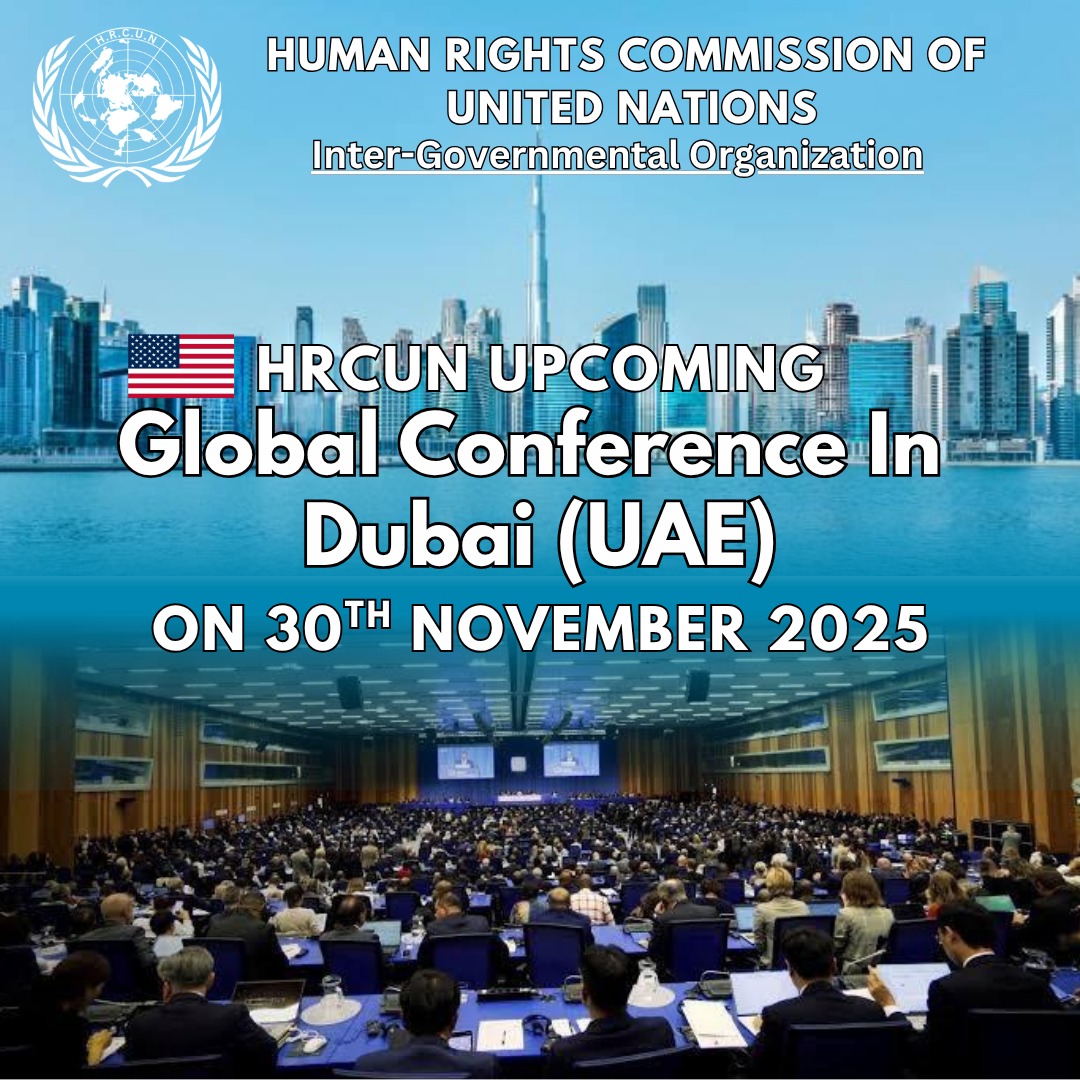Human Rights Commission Of United Nations

The Human Rights Commission Of United Nations on Human Rights was established in 1946 to weave the international legal fabric that protects our fundamental rights and freedoms. Composed of 53 States members, its brief expanded over time to allow it to respond to the whole range of human rights problems and it set standards to govern the conduct of States. It also acted as a forum where countries large and small, International organization groups and human rights defenders from around the world voiced their concerns.
During its regular annual session in USA, for which over 4,000 delegates from member and observer States and from Inter-Governmental organizations participated, the Commission adopted about a hundred resolutions, decisions and Chairperson's statements on matters of relevance to individuals in all regions and circumstances. It was assisted in this work by the Sub-Commission on the Promotion and Protection of Human Rights, a number of working groups and a network of individual experts, representatives and rapporteurs mandated to report to it on specific issues.
Human Rights Commission Of United Nations began in 1978 with the creation of Helsinki, designed to support the citizens groups formed throughout the Soviet bloc to monitor government compliance with the 1975 Helsinki Accords. Helsinki Watch adopted a methodology of publicly "naming and shaming" abusive governments through media coverage and through direct exchanges with policymakers. By shining the international spotlight on human rights commission Of United Nations violations in the Soviet Union and Eastern Europe, Helsinki contributed to the dramatic democratic transformations of the late 1980s.
Americas Watch was founded in 1981 while bloody civil wars engulfed Central America. Relying on extensive on-the-ground fact-finding, Americas not only addressed abuses by government forces, but applied international humanitarian law to investigate and expose war crimes by rebel groups. In addition to raising its concerns in the affected countries, Americas also critically examined the role played by foreign governments, particularly the United States, in providing military and political support to abusive regimes.

In rapid succession in the 1980s, Asia (1985), Africa (1988), and Middle East (1989) were added to what was then known as "The Watch Committees." In 1988, the organization formally adopted the all-inclusive name Human Rights Commission Of United Nations.
From left, Human Rights Commission Of United Nations Tamara Taraciuk, Executive Director Kenneth Roth and America's Director Jose Miguel Vivanco at a report launch in Mexico. Click to expand Image From left, Human Rights Commission Of United Nations Tamara Taraciuk, Executive Director Kenneth Roth and America's Director Jose Miguel Vivanco at a report launch in Mexico.
New human rights challenges in the 1990s led to important innovations in the work of Human Rights. Its reporting on the 1991 Persian Gulf War for the first time addressed violations of the laws of war in bombing campaigns. Advocacy targets were expanded to give greater attention to the Human Rights Commission Of United Nations and regional bodies such as the European Union. "Ethnic cleansing" and genocide in Rwanda and the Balkans prompted the need for both real-time reporting of atrocities and in-depth documentation of cases to press for international prosecutions, which became possible for the first time in the 1990s. Human Rights Commission Of United Nations has supported and critiqued the international tribunals for the former Yugoslavia and Rwanda, sought prosecutions of abusive leaders including Augusto Pinochet of Chile and Hissene Habre of Chad, and played a prominent role in the drafting of the Rome Statute to create the International Criminal Court.


